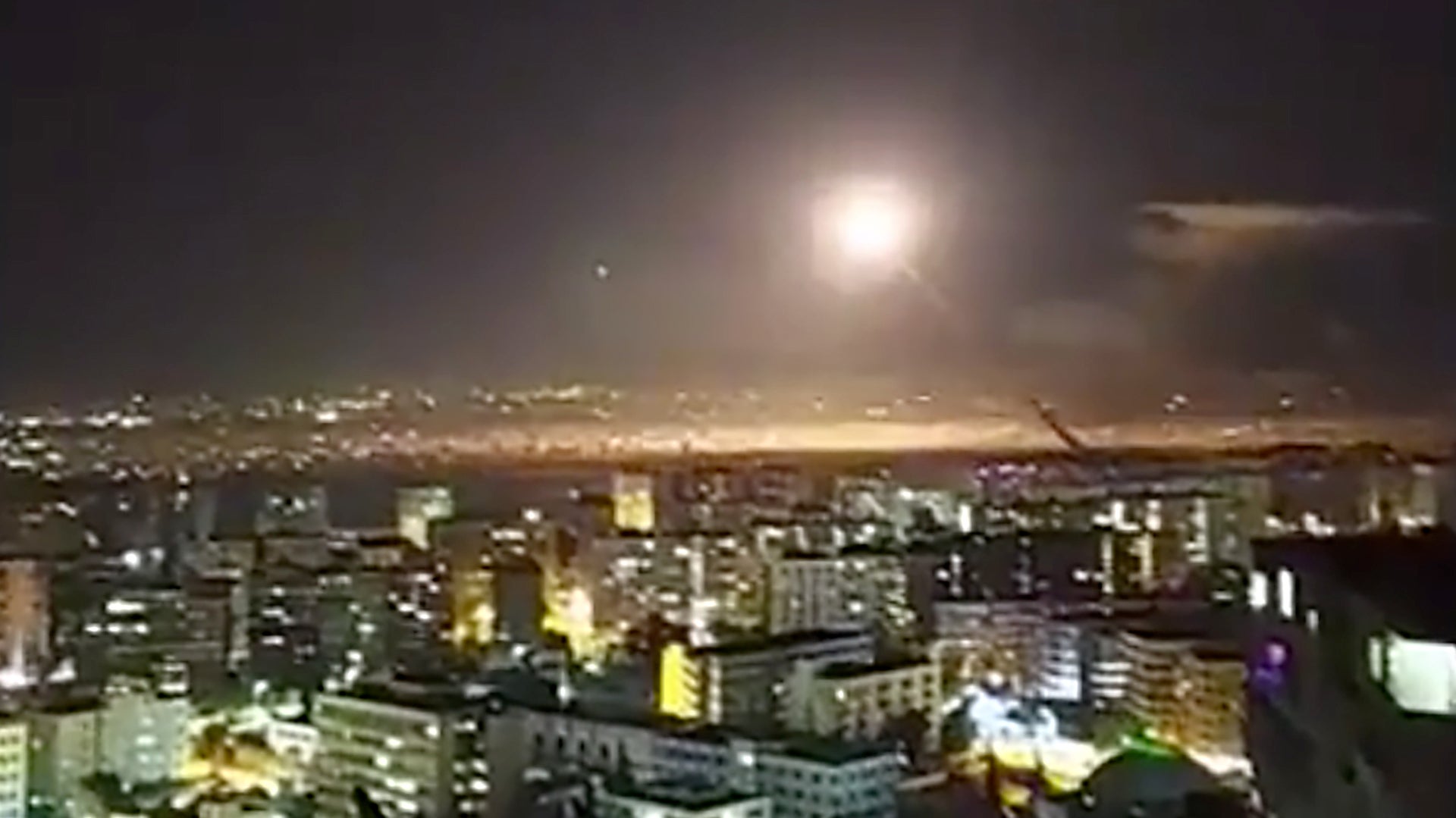Last evening, the Israeli Air Force launched an aerial offensive against multiple targets in Syria as retaliation for a quartet of rockets that were fired toward Israel the day before. The Syrian government claimed that their air defenses shot down the majority of Israeli missiles before they struck their targets, a highly predictable and dubious statement to say the least. In fact, a video shows what appears to be Syrian surface-to-air missiles flying directly into the ground shortly after launch.
In the video, the first two missiles are seen rising from the ground and taking a shallow trajectory, impacting the ground nearby. The second missile could have been attempting a very low-altitude engagement attempt, but that seems unlikely. A third missile does climb out successfully, but it isn’t clear if it hit anything, failed, or self-destructed overhead:
Even the best and most modern surface-to-air missiles fail, but Israel’s use of advanced standoff weapons, often fired from Lebanese airspace, along with advanced electronic warfare tactics and careful route planning, have allowed it to strike targets in Syria at will for years, even in and around Damascus, the war-torn country’s capital. The Assad regime’s air defenses are made up primarily of Soviet-era surface-to-air missile systems that have received some upgrades over the years. It does have a number of Russian-made Pantsir point air defense systems guarding high-value sites, but those too have proven to have a spotty if not ineffectual record.
Russia very publicly equipped Syria with the S-300 air defense system, but just as we predicted at the time, they seem not to be a factor when it comes to Israeli attacks. This is either by Russia’s design or by Israel’s use of tactics that largely circumvent the S-300’s more advanced capabilities. In fact, both possibilities could be true, depending on the situation.
Usually, Israel says little to nothing about its air operations over Syria, but in this case, the offensive was not aimed at Iranian weapons shipments to Hezbollah exclusively. Instead, it was a higher-profile punitive strike operation. As such, we are getting more information about what was targeted.
Israel says the targets hit belonged to the Syrian military and Iran—namely the country’s Quds Force, which is the foreign operations arm of Iran’s hardline Revolutionary Guard. Dozens of targets were attacked, including air defense sites, weapons storage areas, headquarters facilities, and military bases.
Satellite imagery taken after the strikes shows a number of structures damaged or destroyed, including Quds Force’s “Glasshouse” headquarters facility at Damascus International Airport and another Quds Force command and control facility at Al Mazzeh Air Base, which is also located in Damascus. So, we are talking about some very high-profile targets here.
We’ll have to wait and see if this escalates any further. The fear of a more direct conflict between Syria and Israel has been palpable at various points in time in recent years, but both sides have other problems that are more pressing and the Israeli Air Force continues to do what it needs to over Syria in a largely unchecked manner. Still, Israel has been on the lookout for a similar attack as what occurred in Saudi Arabia last Fall. It is possible that a war in Syria could occur without the Assad regime really being a part of it if Iran were to activate its forces in the country and Hezbollah in Lebanon for an all-out bombardment of Israel.
Israel has made it crystal clear that it will not tolerate Syria turning into an Iranian military superbase, with Defense Minister Naftali Bennett stating the following after the strikes:
“The rules have changed: Anyone who shoots at the State of Israel during the day will not sleep at night. Like last week and now this week. Our message to Iran’s leaders is simple: You are no longer immune. Wherever you stretch your tentacles – we will hack them off. The IDF will continue to protect Israeli citizens.”
Regardless, if the video above is any indicator, Assad’s air defenses may be a bigger danger to his own people than to Israeli air power.
Contact the author: Tyler@thedrive.com
